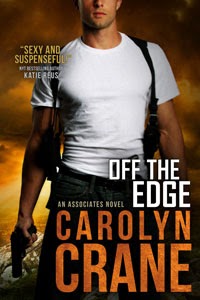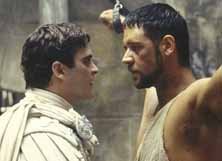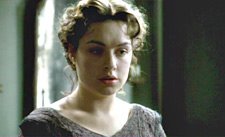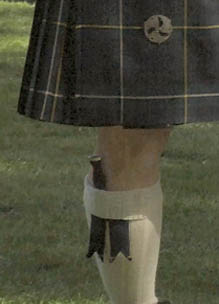Wow, I haven’t done any Great Moments from Last Night’s
Reading in forever! For those new to the blog, Great Moments is a post series
where I discuss small writerly moves or specific scenes I admire in whatever
book I’m reading. This week (yes
week, because I’m the world’s slowest reader. I camp out with the sentences!) I
am reading If You Hear Her by Shiloh Walker.
Book: If You Hear Her by Shiloh Walker
Spoiler level: Low
I’ve actually been having quite a few great moments with IF YOU HEAR HER, the
first book in Shiloh’s trilogy. Today, I want to talk fawningly about one of my favorite Shiloh Walker moves: how good she is at making the reflections of POV characters feel distinct from one another.
This book is written in multiple 3rd person POV (i.e. he
said / she said). I’m a
big admirer of authors who make the POV sections sound really different when
they come from different characters’ minds (instead of all sounding like they
come from the author mind). Kresley Cole and Joanna Bourne are also really excellent at this.
Anyway, as I was reading this book, I was struck by how
strong the different narrative flavors are, and how realistic it makes these
people and their world feel.
One cool thing Shiloh does is allow speech patterns right into
the narration (i.e. not in quoted direct speech) In other words, random
reflections and descriptions feel like speech--it's a great trick and she never overuses it, mixing it with more conventional narration. It creates a really awesome effect. And then she tightens
the narrative flavor even more by staying really cognizant of the priorities
and life experiences of these characters in the way they put things. This is a
tight POV ship!
Here is an example from a section from the POV of Sheriff
Nielson, who is doing some private thinking during a conversation with the
hero, Ezra.
The man in front of him might well be a cop—being on leave was irrelevant—but he was also a man. It wasn’t just a cop’s interest that had Ezra in his office. Nielson knew it as well as he knew his own name, as well as he knew his town.
Made things dicey.
I love that
lone line, all on its own on the page: Made things dicey. That’s what I mean by
a reflection that feels like speech. It’s awesome for the masculine feel of it,
as well as the feel that this is an experienced lawman who doesn’t need to
elaborate. I know other writers do this but I think Shiloh really makes this little move work.
Also, I enjoyed how subtly the preceding
paragraph characterizes, communicating long years of
experience in a small town without ever feeling like an info dump. She could
have said as well as he knew his hand, or his dog, but she used town. A lot of small things add up here.
Here is another example of a passage with interior
reflection that feels like speech, this one from the mind of Hope, who is
helping writer Law Reilly organize himself. She asks him about all these
postcards he keeps.
“Possible book locations,” he replied, his tone absent. He had a glazed look in his eyes, almost hypnotized.
She lifted her brows. “You plan on writing a book in…Adair, Iowa? What exactly is in Adair Iowa?”
“Nothing…that I know of.” He slanted a grin at her. “That means there’s probably something. There’s always something, somewhere.”
“You’re strange, law. Very strange.
His only response was a grunt.
Looking back at the postcards, she grabbed a pencil and the notepad she’d been using. If he was going to keep a running list of possible locations, he could keep them more organized, she figured. A photo album would hold them all just fine. Add that to the list of fifteen other things she needed.
 The last paragraph is such a nice use of it, because it has
a mix of action and conventional narration and then that last line with its little subtle dialogue-y attitude. Add that to the list of fifteen other things she needed. If I was writing this, I would have been tempted to say She added that to the list of fifteen
other things she needed, which wouldn't have half the fun narrative
flavor.
The last paragraph is such a nice use of it, because it has
a mix of action and conventional narration and then that last line with its little subtle dialogue-y attitude. Add that to the list of fifteen other things she needed. If I was writing this, I would have been tempted to say She added that to the list of fifteen
other things she needed, which wouldn't have half the fun narrative
flavor.
It’s the same animal as the Made things dicey from above,
but feels so much like it’s from a different character’s mind.
Also, I partly put this passage up because I just LOVE when
writers write about writers. Writing is such a lonely profession; it’s wonderful
to be invited into the intimacy of another writer's office. I enjoyed
speculating on what of this stuff Shiloh actually does, like if she collects
postcards. It’s not a bad idea! Novelist Law Reilly is the hero of the third book in this trilogy, but totally
my favorite character.
Images: policeman by Brett Gustafson from wikicommons; writer at desk: Mary Pickford from wikicommons


























































































































































2 comments:
Yes, yes, yes *nodding* and yes.
Thank you for articulating this. It's one of those things you feel viscerally but can't always put into words--at least, not words that make sense to others outside your own head.
LOL... I buy maps. Or local ghost stories. ;)
Man, you almost make me sound like I know what I'm doing... O.o (don't tell anybody I don't.)
I'm glad you liked IF YOU HEAR HER...
Post a Comment